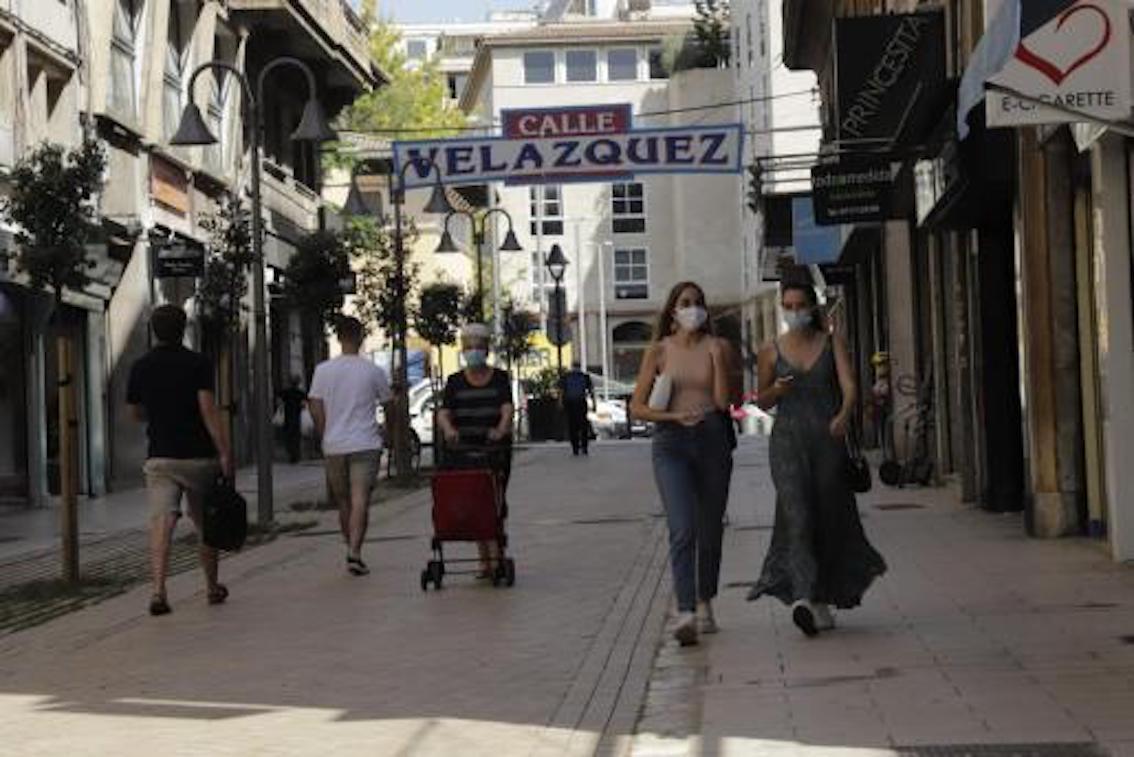The Draft Decree is likely to be approved on Tuesday, June 9. The text has been agreed by the Regional Governments and states that the Autonomous Communities are responsible for the "adoption, abolition, modulation and implementation" of measures corresponding to Phase 3, "except for measures related to freedom of movement which exceed the scope of the determined territorial unit."
Regional Governments will also decide whether to pass the last stage of the transition plan "according to health and epidemiological criteria.”
The Draft Decree states that masks are mandatory for anyone over 6 years old in enclosed spaces when it is not possible to guarantee the social distancing, when travelling “by air, sea, bus, or by railway and on public passenger transport vehicles with up to nine seats, including the driver.”
“It will not be necessary to wear masks when guests are inside their cabin on ships and boats.”
“Persons with any type of illness or respiratory distress that may be aggravated by the use of the mask, or who, due to their disability or dependency, do not have the autonomy to remove the mask, or have behavioural disorders will be exempt, as well as in cases of force majeure, a situation of need or when, by the very nature of the activities, the use of the mask is incompatible,” according to the Health Authorities.
Company Management must take appropriate cleaning and disinfection measures and workers must have access to soap and water, or hydroalcoholic gels or disinfectants with virucidal activity, that are authorised by the Ministry of Health for cleaning. Jobs, shifts and working conditions must be adapted to ensure 1.5-2 metre social distancing is maintained and if this is not possible, workers must be provided with protective equipment appropriate to the level of risk.
Measures must also be established to avoid crowds of workers and customers in the workplace especially at busy times.
Anyone who develops coronavirus symptoms should not go to work and contact a Health Centre immediately.
Occupational Risk Prevention
Hospitals must provide the necessary protective materials, clean and disinfect areas used, eliminate waste and guarantee the maintenance of equipment and facilities.
Educational Centres will be obliged to guarantee "the rules of disinfection, prevention and conditioning of the aforementioned Centres that they establish".
The draft states that it will be mandatory to avoid congestion and ensure that a safe distance is maintained and, where this is not possible, to establish "appropriate hygiene measures to prevent the risks of contagion.”
Prevention and hygiene measures will also be mandatory at Sheltered Housing and Residential Centres for people with disabilities and the elderly and special care must be taken "to ensure that visits and walks are carried out in conditions that prevent the risk of contagion at all times" and that contingency plans are in place in the event of any resurgence of the disease.
The draft also establishes disinfection standards for Shopping Centres, Parks, open air markets and flea markets.”
In Hotels and Tourist accommodation, the draft points out that special attention must be paid to common areas to guarantee social distancing.
At cultural facilities, public shows, recreational activities and sports facilities, general hygiene and social distance regulations are mandatory.
Transport
Rail and other public transport operators must reduce the number of available seats to avoid overcrowding and comply with social distancing.
"Without prejudice to the provisions of the previous section, the Head of the General Directorate of Land Transport may adapt the offer of such services to ensure they function properly, or when there are reasons of general interest," the draft states.
Interprovincial air and land transport operators and maritime transport operators must collect contact information from all passengers, the details must be kept for a minimum of four weeks after the trip and given to the authorities if required.
The Director General of the Merchant Marine may modulate the levels of service provision and order, at the proposal of the Ministry of Health, "the adoption of appropriate sanitary measures for the control of passengers on ships, wheeled transhipment and passenger ships, including cruise ships, which make International voyages and navigate the waters of the territorial sea in order to enter Spanish ports open to International navigation.”


3 comments
To be able to write a comment, you have to be registered and logged in
Don’t make me laugh take a look on the webcams people kissing sharing bongs in bars not cleaning tables when people leave no social distancing looks like Mallorca is going too explode into a covid 19 crisis
Welcome to communist Spain where we tell you what to wear.
COMPULSORY !!!. I do not see many face masks in use. If a second spike of infection occurs on the Island because people were not wearing masks. It will completely destroy the impending possibility of Tourist returns, Hotels opening, Businesses opening. With no work and no money continuing to keep Mallorca in Lockdown for many more months.